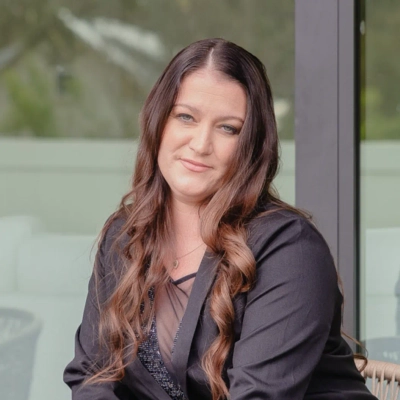Entrepreneurs face myriad challenges requiring a diverse set of skills to succeed. We asked industry experts to share one skill they had to develop as an entrepreneur that they didn’t anticipate needing — and how they went about acquiring that skill. Discover entrepreneurial abilities that can make the difference between a struggling startup and a thriving enterprise.
- Identify People’s Motivations for Team Success
- Master the Art of Compelling Storytelling
- Transform Rejection into Valuable Insights
- Develop Essential Financial Knowledge
- Balance Work with Intentional Relaxation
- Embrace Financial Forecasting for Business Clarity
- Master the Art of Strategic Abandonment
- Learn to Delegate and Seek Expert Support
- Cultivate Emotional Resilience During Uncertainty
- Practice Detachment from Outcomes in PR
- Build Strong Systems and Empower Your Team
- Hone Prioritization Skills for Maximum Impact
- Align with Existing Systems for Progress
- Embrace Delegation for Business Growth
- Regulate Your Nervous System Daily
- Empower Your Team Through Effective Delegation
- Simplify Complex Ideas and Build Rejection Resistance
- Learn to Let Go Fast for Growth
18 Essential Entrepreneur Skills You Didn’t Know You Needed
Identify People’s Motivations for Team Success
Being good at identifying people’s motivations is crucial.
This is the #1 skill for hiring and retaining talent. Not everyone has the same needs, and sometimes someone’s motivations may not make them a good fit for the team relative to the current stage of the company. Identifying these motivations early is hyper-critical.
 Rachel Lauren
Rachel Lauren
Co-Founder, COO and Growth, Debbie
Master the Art of Compelling Storytelling
One skill I didn’t anticipate needing as much was storytelling. It’s not just about pitching to investors or customers — it’s about aligning your team, explaining the vision clearly, and making people care. Early on, I realized that a great product alone wasn’t enough if people didn’t understand the “why” behind it.
I developed this skill by writing often, talking to users directly, and studying how other founders communicated in public. Over time, it became second nature to turn product updates, setbacks, and even roadmap decisions into narratives that the team and community could rally around.
 John Xie
John Xie
Co-Founder and CEO, Taskade
Transform Rejection into Valuable Insights
I didn’t think I would need the ability to turn rejection into useful information. At first, I thought that rejection meant a flat “no,” but in reality, it often means that the information is not complete. I began to see every “no” from a client, investor, or potential hire as a chance to dig deeper. I’d ask questions like, “What would have made this a yes for you?” or “What’s wrong with our approach?” Over time, I developed a simple feedback loop for after a rejection: I would collect responses, look for patterns, and change my messaging or offerings based on what I found. That change transformed rejection from a roadblock into an iterative process. It has helped me improve both our business strategy and how I lead teams.
 Vikrant Bhalodia
Vikrant Bhalodia
Head of Marketing & People Ops, WeblineIndia
Develop Essential Financial Knowledge
A surprising skill I have developed is financial knowledge. Math was my least favorite subject in school; however, when I established my company, I realized that understanding numbers and figures was essential to helping me drive growth and avoid financial problems.
When I first met with investors about launching my company, I quickly realized that it wasn’t my business ideas they were interested in, but rather forecasts and cash flow. To gain a better understanding of this, I found a management accountant to help me create and understand the financial forecast for my business.
This allowed me to secure investment for my new company and set us up for success. While I now have a Financial Director who covers the financial side of my business, having that knowledge helped me run my business in its early years.
 Matt Collingwood
Matt Collingwood
Founder and Managing Director, VIQU IT Recruitment
Balance Work with Intentional Relaxation
Having fun and making time away from your business are just as important as all your other skills, and I will stand by this belief firmly.
Many entrepreneurs are hard workers, visionaries, and a little obsessive about their businesses. It’s easy for us to get stuck ruminating on our work.
However, what exactly is the point of building all this if you never get to enjoy your life? I made the intentional effort to have more fun, be more relaxed, and give my brain the space to be creative. Guess what? My business improved as a result.
Develop the skill of stepping away and enjoying your life.
 Delaney Rietveld
Delaney Rietveld
Website Copywriter, Dark Roast Copy Co.
Embrace Financial Forecasting for Business Clarity
Early on, I realized that without a solid grasp of financial forecasting, I was flying blind — especially when rolling out new digital products and planning agency retainer tiers. I had always leaned on rough back-of-the-napkin estimates, but when cash flow tightened, I had to develop true financial modeling skills. I enrolled in a focused course on Financial Modeling and Valuation. By building dynamic spreadsheets that linked revenue scenarios, expenses, and burn rate, I gained the clarity to make confident decisions on pricing, hiring, and marketing spending.
To acquire this skill, I treated it like any critical deliverable: I blocked two hours twice a week for structured learning, applied each lesson immediately to my numbers, and sought feedback in a private Slack group of fellow solopreneurs. Within six weeks, I had moved from guesswork to a rolling 90-day forecast that updated automatically as real data came in. That newfound rigor not only prevented cash-flow scares but also gave me the confidence to pitch new packages to high-end clients — because I could clearly show margin projections and return on investment (ROI). If you haven’t already, carve out dedicated time each week to master basic forecasting: the ROI on understanding your numbers is far greater than any ad spend.
 Kristin Marquet
Kristin Marquet
Founder & Creative Director, Marquet Media
Master the Art of Strategic Abandonment
When I started my company, I prepared for everything: market research, financial modeling, team building, customer acquisition. What I didn’t prepare for was grief.
Not the obvious kind —- losing a major client or watching a competitor steal market share. I’m talking about the constant, subtle grief of letting go of ideas, strategies, and visions that once felt essential to your identity.
The wake-up call came during our third pivot. We had to abandon a feature set I’d spent two years obsessing over —- something I genuinely believed would change our industry. As I watched the engineering team delete thousands of lines of code, I felt physically sick. It wasn’t about the sunk cost; it was about mourning a piece of my entrepreneurial soul.
That’s when I realized: successful entrepreneurship isn’t just about building things. It’s about mastering the art of strategic abandonment. And abandonment, even when rational, triggers grief.
1. The Problem: Most entrepreneurs get stuck in the bargaining stage of grief. “Maybe if we just tweak the pricing model…” or “What if we target a different segment…” We cling to failing strategies like emotional life rafts, burning cash and time because we can’t psychologically let go.
2. The Solution: I started treating major pivots like actual losses, complete with mourning rituals. I’d write what I called “eulogy documents” — honest assessments of what we were abandoning, why it mattered, and what we learned. Then I’d literally delete the files and take a day to feel the loss before moving forward.
3. The Transformation: This seemingly “soft” skill became my competitive advantage. While competitors agonized over sunk costs and attachment to original visions, I could pivot faster because I’d processed the emotional reality of change.
I learned to grieve strategies, partnerships, hiring decisions, and product features with the same intentionality that I approached financial planning. Each grief cycle made the next one faster and less paralyzing.
4. The Unexpected Truth: The entrepreneurs who scale aren’t those who avoid failure — they’re those who can emotionally process failure quickly enough to try again. Grief isn’t a weakness in entrepreneurship; it’s a skill that determines your iteration speed.
The market doesn’t care about your emotional attachment to ideas. But your ability to let go determines whether you’ll be fast enough to find the ideas that actually work.
 Nirmal Chhabria
Nirmal Chhabria
Professor and Academic Director
Learn to Delegate and Seek Expert Support
One skill I did not expect to need as an entrepreneur was learning how to ask for help and bring in support from people who know more than I do in certain areas.
In the beginning, I thought I had to do everything myself. I believed that figuring it all out on my own was part of the process. I spent hours trying to learn how to build a website, set up systems, write copy, and manage finances. But the truth is, I was spending more time trying to be good at things that were completely outside my zone of expertise, and it was exhausting.
Eventually, I realized that asking for help is not a weakness. It is a smart and necessary part of running a business. I started reaching out to people with specific skills and experience, and I gave myself permission to invest in expert support. Whether it was working with a designer, a tech specialist, or a coach, getting help made everything feel lighter and more professional.
Learning to let go of the idea that I had to do everything alone allowed me to focus on what I do best. It has helped my business grow in ways I never could have achieved by trying to do it all on my own.
 Megan Nicholls
Megan Nicholls
Founder and Business English Coach, Mega Language Coach
Cultivate Emotional Resilience During Uncertainty
One skill I didn’t expect to need — but absolutely had to develop — was emotional resilience during long periods of uncertainty.
When you’re building something from scratch, especially in SaaS, there are stretches where nothing moves: sales slow down, product hits a wall, team motivation dips. And no one really prepares you for how mentally draining that is. You’re supposed to “keep leading,” even when you’re unsure yourself.
How did I build it? Honestly — the hard way. I started journaling every morning, forced myself to sleep 7+ hours (even when I didn’t feel like I had “earned” it), and learned to talk openly with other founders instead of pretending everything was fine. Therapy helped too — just having a space to unpack everything that doesn’t fit in a KPI dashboard.
I used to think entrepreneurship was all about strategy, product, and hustle. But the real skill is staying grounded when the results don’t come as fast as you’d hoped — and still showing up the next day with clarity and focus.
 Alex Bilytskyi
Alex Bilytskyi
CEO
Practice Detachment from Outcomes in PR
One skill I didn’t anticipate needing as much as I do is emotional detachment from outcomes. In PR, you pour everything into the pitch — craft the perfect angle, research the right contacts, follow up like clockwork — and sometimes…crickets. As an entrepreneur, especially in a creative field, that used to feel personal. But I had to learn that no response doesn’t equal no value.
What helped me develop that muscle was simply experience — and honestly, a few hard weeks of burnout. I started reframing “rejection” as redirection and focused more on consistency over perfection. I also began tracking wins over time to remind myself that momentum isn’t always loud. It’s a tough skill to learn, but once you do, it frees you up to keep showing up without losing your spark.
 Trevor Perkins
Trevor Perkins
Founder, PERK PR & Creative Agency
Build Strong Systems and Empower Your Team
I had to develop the ability to create good systems and build a strong team. I was sick once during a launch and before a big event. Through this experience, I had to learn to trust and empower the team to carry the load when I could not.
 Dielle Charon
Dielle Charon
Business Coach, For the 23%
Hone Prioritization Skills for Maximum Impact
A skill that has been very beneficial to me and the hardest to learn has been prioritization. I’ve always thought prioritization was a good skill to have, but I didn’t realize how important it was until around 3 years into my entrepreneurship journey. Prioritization, to me, is a skill that encompasses 3 areas:
- Ability to think through the ripple effects of a decision (downstream effects, second-order effects, etc.)
- Firm understanding of what will move the needle the most
- Staying incredibly focused on achieving your prioritized list
Like most skills, learning how to properly prioritize your business decisions and objectives takes repetition, feedback, failures, and successes.
I started learning proper prioritization at the start of COVID. The startup I was with was an end-to-end loan management software for small-business lenders. Some of our clients received the contracts for Federal COVID small-business relief funds. Literally overnight, our platform’s usage 100x’d across all aspects. We were forced to prioritize and ship updates and features that had the biggest impact, and very quickly.
Since then, I’ve leaned heavily on my mentors, co-founders, and employees to continue working on my prioritization. We have weekly sessions where we talk through our prioritizations and validate our priority list. These sessions typically involve discussing our major goals and working backwards through each step. Things change pretty fast in the startup space; however, what I’ve found is that if you can prioritize your goals based on what has the biggest impact, think through the steps, and have the focus to execute, you can accomplish a lot.
Currently, I’m in a major planning and prioritization stage of my latest startup, hozzl.com. We believe we have a great product and are trying to answer the question, “What moves the needle the most?” from both a technical and marketing viewpoint. Depending on the stage of your startup, that can be the most important question to answer.
 Lee Gilliam
Lee Gilliam
Founder, Hozzl
Align with Existing Systems for Progress
Learning how to work with existing systems to make meaningful progress.
As a founder, I’ve learned that progress often comes from understanding how things already operate. Whether it’s a team, a process, or a decision structure, getting familiar with how work actually gets done has helped me find smarter ways to contribute and improve outcomes.
Being aligned with the way people work makes it easier to build trust, move faster, and create real value without slowing things down.
 Alex Smereczniak
Alex Smereczniak
Co-Founder & CEO, Franzy
Embrace Delegation for Business Growth
When embarking on my entrepreneurial journey, I anticipated many things like planning, preparing, sales, and leadership. However, the one thing that came as a shock to me was learning how to let go of control. It seems counterintuitive — you don’t go into business to relinquish control, right?
Yet, that was the hardest and most important shift I had to make.
When I became pregnant with my first child, I had no choice but to delegate. Then I did it again with my second. Trusting others with parts of my business was scary but necessary — and it actually helped me grow and scale faster than I could have on my own. The hard truth is, no one can build an empire entirely on their own. There will come a time when you have maxed out your capacity, and you’ll need to delegate. Just trust in the process.
 Karen Aucoin
Karen Aucoin
Luxury Floral & Event Designer, Business Owner, Studio 131
Regulate Your Nervous System Daily
Regulating my nervous system is a skill every business owner MUST HAVE. It helps with the flow of ups and downs happening daily as you build your business. I started listening to a private podcast by Chelsea Quint. It’s a daily check-in I have with myself on how I’m feeling, so I can keep going. Her podcast has been perfect because I can see what is going on and pick an episode to help with it. When I don’t know which episode to choose, I listen to a bunch of them to help!
 Jerrica Long
Jerrica Long
Storyteller Show Runner, Jerrica Says
Empower Your Team Through Effective Delegation
Effective delegation is crucial.
When I started my business, I thought that being an entrepreneur was all about doing everything myself, from making decisions to interacting with clients.
I believed that if I wanted to do things right, I had to do them personally.
But I quickly realized that I couldn’t do it all. I was getting overwhelmed, and important tasks were slipping away. That’s when I hired talent for my business. But I found myself still interfering with their roles and trying to control everything.
Unsurprisingly, we were heading nowhere, and the real change came when I took a vacation.
And that’s when I understood the power of delegating responsibilities to my team and letting them grow. When I was not constantly telling them what to do, they took charge of their responsibilities and did what had to be done in the best way possible.
Delegating not only freed up my time to focus on growing the business, but it also empowered my team.
They turned out to be more confident and creative, and the company culture also improved.
 Nir Appelton
Nir Appelton
CEO, The CEO Creative
Simplify Complex Ideas and Build Rejection Resistance
Two skills I never expected to need as an entrepreneur: learning to simplify complex ideas and building rejection resistance.
When you’re creating something innovative, people won’t always understand it on the first try. Whether I’m talking to a pet parent, a teammate, or a retailer, I’ve had to learn how to explain skin microbiome science and ingredient sourcing in a way that doesn’t sound like a scientific paper. I honed that skill by reading teen publications on complex topics and using prompts like, “Explain this like I’m 10,” to practice simplifying without oversimplifying.
The second skill — rejection resistance — is less glamorous. Recently, as an introverted founder, I walked into top NYC vet clinics without an invitation to explain my product. Some were kind. Others dismissed me. You leave, shake it off, and walk into the next one. There’s no shortcut — just persistence. The more you get rejected, the less it hurts. And the faster you realize: it’s never personal. It’s just part of the journey.
 Zhenya Villarreal
Zhenya Villarreal
Founder, ShelterBaby
Learn to Let Go Fast for Growth
One skill I didn’t anticipate needing as an entrepreneur was learning to let go — fast.
I came from a background where perfection and planning mattered. But when you’re building something from scratch, speed, adaptability, and knowing when good is good enough become essential.
Early on, I realized I was holding things back by trying to get every page, every campaign, every product hook “just right.” I had to learn to release control, trust the process, and validate in real-time — even if it meant things were messy.
To build that muscle, I did three things:
1. I surrounded myself with people who think fast and don’t overthink.
2. I set hard time limits on decisions — even creative ones.
3. I reframed progress as learning: every imperfect launch gave me data, and data beats theory every time.
Now I focus on momentum over polish — and that shift has been game-changing for growth.
 Abigail Pike
Abigail Pike
CEO & Founder, Maneo Technology
 Rachel Lauren
Co-Founder, COO and Growth, Debbie
Rachel Lauren
Co-Founder, COO and Growth, Debbie
 John Xie
Co-Founder and CEO, Taskade
John Xie
Co-Founder and CEO, Taskade
 Vikrant Bhalodia
Head of Marketing & People Ops, WeblineIndia
Vikrant Bhalodia
Head of Marketing & People Ops, WeblineIndia
 Matt Collingwood
Founder and Managing Director, VIQU IT Recruitment
Matt Collingwood
Founder and Managing Director, VIQU IT Recruitment
 Delaney Rietveld
Website Copywriter, Dark Roast Copy Co.
Delaney Rietveld
Website Copywriter, Dark Roast Copy Co.
 Kristin Marquet
Founder & Creative Director, Marquet Media
Kristin Marquet
Founder & Creative Director, Marquet Media
 Nirmal Chhabria
Professor and Academic Director
Nirmal Chhabria
Professor and Academic Director
 Megan Nicholls
Founder and Business English Coach, Mega Language Coach
Megan Nicholls
Founder and Business English Coach, Mega Language Coach
 Alex Bilytskyi
CEO
Alex Bilytskyi
CEO
 Trevor Perkins
Founder, PERK PR & Creative Agency
Trevor Perkins
Founder, PERK PR & Creative Agency
 Dielle Charon
Business Coach, For the 23%
Dielle Charon
Business Coach, For the 23%
 Lee Gilliam
Founder, Hozzl
Lee Gilliam
Founder, Hozzl
 Alex Smereczniak
Co-Founder & CEO, Franzy
Alex Smereczniak
Co-Founder & CEO, Franzy
 Karen Aucoin
Luxury Floral & Event Designer, Business Owner, Studio 131
Karen Aucoin
Luxury Floral & Event Designer, Business Owner, Studio 131
 Jerrica Long
Storyteller Show Runner, Jerrica Says
Jerrica Long
Storyteller Show Runner, Jerrica Says
 Nir Appelton
CEO, The CEO Creative
Nir Appelton
CEO, The CEO Creative
 Zhenya Villarreal
Founder, ShelterBaby
Zhenya Villarreal
Founder, ShelterBaby
 Abigail Pike
CEO & Founder, Maneo Technology
Abigail Pike
CEO & Founder, Maneo Technology







